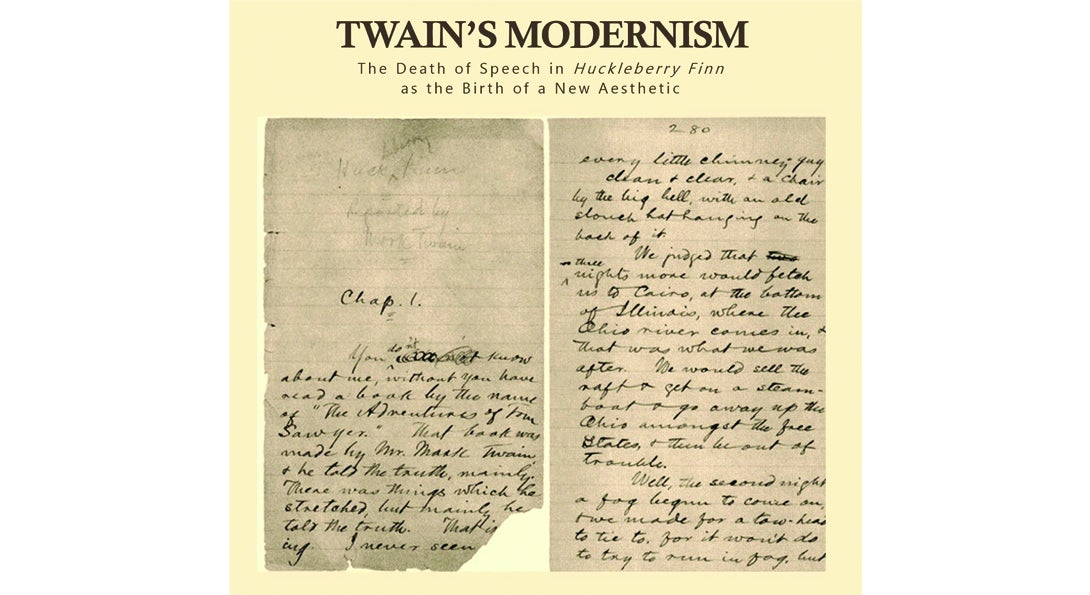Mika Turim-Nygren Mock Job Talk: “Twain’s Modernism”
November 8, 2019
3:00 PM - 5:00 PM

PhD Candidate Mika Turim-Nygren will give a mock job talk.
Abstract:
While critics may wrestle with Huckleberry Finn’s role in the American canon – including what Hemingway meant by singling it out for praise – they usually agree that Huck sounds as lifelike as “a real boy talking out loud.” Yet Twain himself believed that “the moment ‘talk’ is put into print” it turned into a “corpse.” His solution was a specifically written mode of ‘talk,’ severed from its origins in speech so as to belong on the page rather than in anyone’s mouth. For Hemingway, Twain provides a model for overcoming the problem of artificial dialog not because his printed talk sounds just like the real thing, but because it’s no longer primarily trying to. And when Hemingway himself composes dialog that displaces what was ‘really’ said somewhere off the page, using a kind of purported translation that Ben Lerner has termed “virtualization,” he reveals Twain as an unexpected source of American literary modernism – and of modern nationalism as well. That is, since Huck’s language derives from oral catchphrases rooted in racialized dialect, his voice transforms the kind of minority speech associated with the country’s deepest divisions into the kind of literary language that everyone could recognize as “purely American.”
Bio:
Mika Turim-Nygren is a PhD candidate in the English department at the University of Illinois at Chicago. Her job talk, “Twain’s Modernism,” comes from chapter one of her dissertation, a version of which is also forthcoming in J19 8.1 (spring 2020). Her dissertation takes up the astonishing popularity of dialect fiction in nineteenth-century American literature - from Twain to the African-American poet Paul Laurence Dunbar, the Yiddish-speaking immigrant Abraham Cahan, and the “delicate” female “miniaturist” Sarah Orne Jewett - to argue that dialect, for all its purported naturalism, is best understood as engendering the kind of self-consciously literary ambitions that would come to define American modernism.
Date posted
May 1, 2019
Date updated
Nov 5, 2019